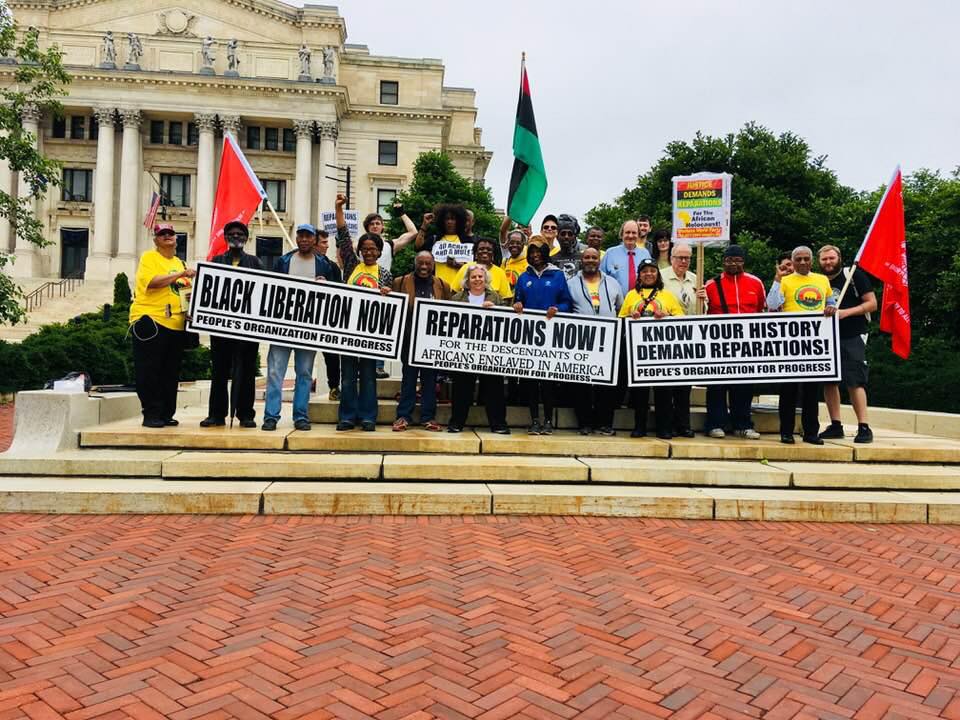The racial wealth divide between Black and White Americans is much bigger — and more stubborn — than many of us realize.
The median African-American household has just 6 percent of the wealth of the median White American household, the Institute for Policy Studies found in 2020. That’s actually a lower percentage than four decades prior. The racial wealth divide is vast — and it may be growing.
This is a result of public policy. Not just slavery but also segregation, mass incarceration, housing and lending discrimination, and other injustices that persist. Closing this gap will also take public policy — including some form of cash payments to help Black families build their wealth, otherwise known as reparations.
More and more communities are exploring what this might look like.
One particular headline-grabbing plan comes from San Francisco, where the median Black income is just $31,000, compared to $116,000 for Whites — an even greater divide than the country at large. San Francisco’s nonbinding Draft Reparations Plan, released in December, calls for “$5 million for each eligible African-American resident” in reparations.
The primary critique of this plan has been the expense. The Hoover Institution, a conservative think tank, estimates that $5 million for every eligible Black adult in the city would amount to $175 billion, significantly more than the city budget of $14 billion yearly.
Cash payments can and should play an essential role in economic repair for African-Americans. But I don’t think one large lump-sum payment is ideal for wealth building. In my policy work, I’ve proposed $20,000 a year for 20 years for all African-Americans that meet the requirements for reparations.
A substantial sum of funds over 20 years is much more likely to be used for sustained economic advancement than a one-time mass payment. In San Francisco, this would still be a significant expenditure — about $900 million a year — but much more affordable than a $175 billion expenditure.
Still, cash is just one piece of the puzzle.
What gets lost in the discussion about numbers is the more holistic approach developed in San Francisco that can serve as a national model for addressing the Black-White racial wealth divide. The plan recognizes the depth and breadth of the divide and seriously approaches the various asset categories that build — or destroy — wealth.
In its detailed action section, it calls for the city to close the school-to-prison pipeline; use land-use controls to reduce the number of unhealthy establishments in Black communities; offer tax relief and incentives to Black-owned businesses; establish a community land trust governed by Black residents; and generate local political support to bring back funding for affirmative action programs, among many other constructive steps.
Of course, for local reparations to be most effective, there needs to be a national reparations program to build upon. The federal government is much better able to fund the broad and bold initiatives required to address what many have called our nation’s original sin, white supremacist racism.
What’s more, many federal policies — like passing a robust living wage, developing a Medicare for All program, allowing the Postal Service to offer low-cost banking services, and more — would benefit Americans of every race while reducing the racial wealth gap.
Repairing this damage is expensive. But not making the necessary investments to bridge this divide costs even more.
Aside from the headline-grabbing figures, the holistic approach of San Francisco’s draft plan makes it a model for the type of federal intervention necessary to address racial, economic inequality. The Black-White economic divide keeps about one in five African-Americans in poverty and leads to the continuing mass incarceration of African-Americans, among many other injustices.
Without deep and widespread intervention, our centuries-old racial wealth divide will continue for centuries. It costs the nation and its African-American citizens too much not to invest in reparations!
